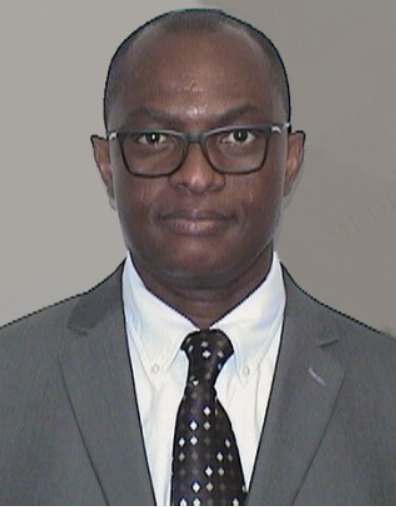 Before he came to WMed in November, Dr. Ransome Eke spent 16 months as an embedded scholar at Clemson University coordinating research in the Pediatric Academic Research Department at the Children's Hospital of Greenville Health System.
Before he came to WMed in November, Dr. Ransome Eke spent 16 months as an embedded scholar at Clemson University coordinating research in the Pediatric Academic Research Department at the Children's Hospital of Greenville Health System.
Last year, he was the recipient of a highly competitive American College of Gastroenterology Smaller Programs Award and conducted a longitudinal study investigating the association between secondhand smoke exposure and eosinophilic esophagitis disease in children. In the research Dr. Eke has done, he has worked closely with medical students and residents from the University of South Carolina, as well as Public Health and pre-med students from Clemson.
Now at WMed, Dr. Eke is building on his past experience to help coordinate the curriculum for Active Citizenship, a longitudinal program that combines community service with research for first- and second-year medical students who get the chance to work at several different sites throughout the Kalamazoo community.
"At WMed, it's really what I want to do - work in a medical system bridging the gap between the medical school and the community, and the opportunity for research," Dr. Eke said.
Dr. Eke brings a vast amount of experience to his new role at WMed as an assistant professor in Epidemiology and Biostatistics, a division of the medical school's Department of Biomedical Sciences. A native of Nigeria, he started a medical practice there in 1998 and worked as a trauma and emergency physician, and completed a residency in Family Medicine.
Hoping to gain more research training, he came to the U.S. in 2007 and earned a master's degree in Public Health from Tulane University. Later, he earned a PhD in Epidemiology, Biostatics, and Environmental Health from the University of Memphis.
Among his other accomplishments, Dr. Eke is the principal investigator on a grant from the South Carolina Teleheath Alliance to examine the feasibility of follow-up care for children with eosinophilic esophagitis using telemedicine technology. His research efforts have also extended to type 1 diabetes prevention and understanding healthcare utilization and the ecological and spatial distribution of type 1 diabetes in children.
Dr. Eke said his work with medical students and the Active Citizenship program at WMed began immediately when he arrived to Kalamazoo in November.
He said he and Dr. Cheryl Dickson, WMed's associate dean for Health Equity and Community Affairs, are now working closely with members of the Class of 2020 to form "meaningful, measurable and focused" research questions for Active Citizenship and holding monthly meetings to gauge progress on each Active Citizenship group's project.
The students are also learning about the Institutional Review Board process and Dr. Eke said a next phase will involve guiding the students through exploring literature as part of their research.
"I think, so far, the response from students has been very positive," Dr. Eke said. "Research is an art and once you're are able to come up with your research question, your work is as good as done. If you don't have a research question, you don't know what's achievable and there's no direction."
Just as important as the research students are conducting through Active Citizenship is the community service aspect of the program. Dr. Eke said the students' work with different organizations in the community is vitally important.
"We want them to understand the social aspects of medicine and be able to communicate with the community and their patients, and be well abreast of social determinants that affect health and be an advocate for the community."
Going forward, Dr. Eke said he wants to grow the medical school's Active Citizenship program into something that will "go beyond WMed."
"We should be looking at conferences, publications," Dr. Eke said. "By the end of Active Citizenship, I'm hopeful (students) will have some publications or, at the very least, (present at) a conference."
Dr. Eke said he believes WMed's Active Citizenship program is giving students at the medical school a leg up on students at other medical schools by helping them get involved in research early in their medical education.
He said the work is important and will help the students during residency and after as there is now more emphasis on practicing physicians to be involved in research, "especially community, participatory and patient-centered outcomes."
"I think we're setting the bar because most schools don't emphasize research," Dr. Eke said. "Here, research is a core piece of the program and we're way ahead of most schools. I think we can definitely be used as a point of reference, as a model to improve Active Citizenship models at other schools.
"This is a great program here."
